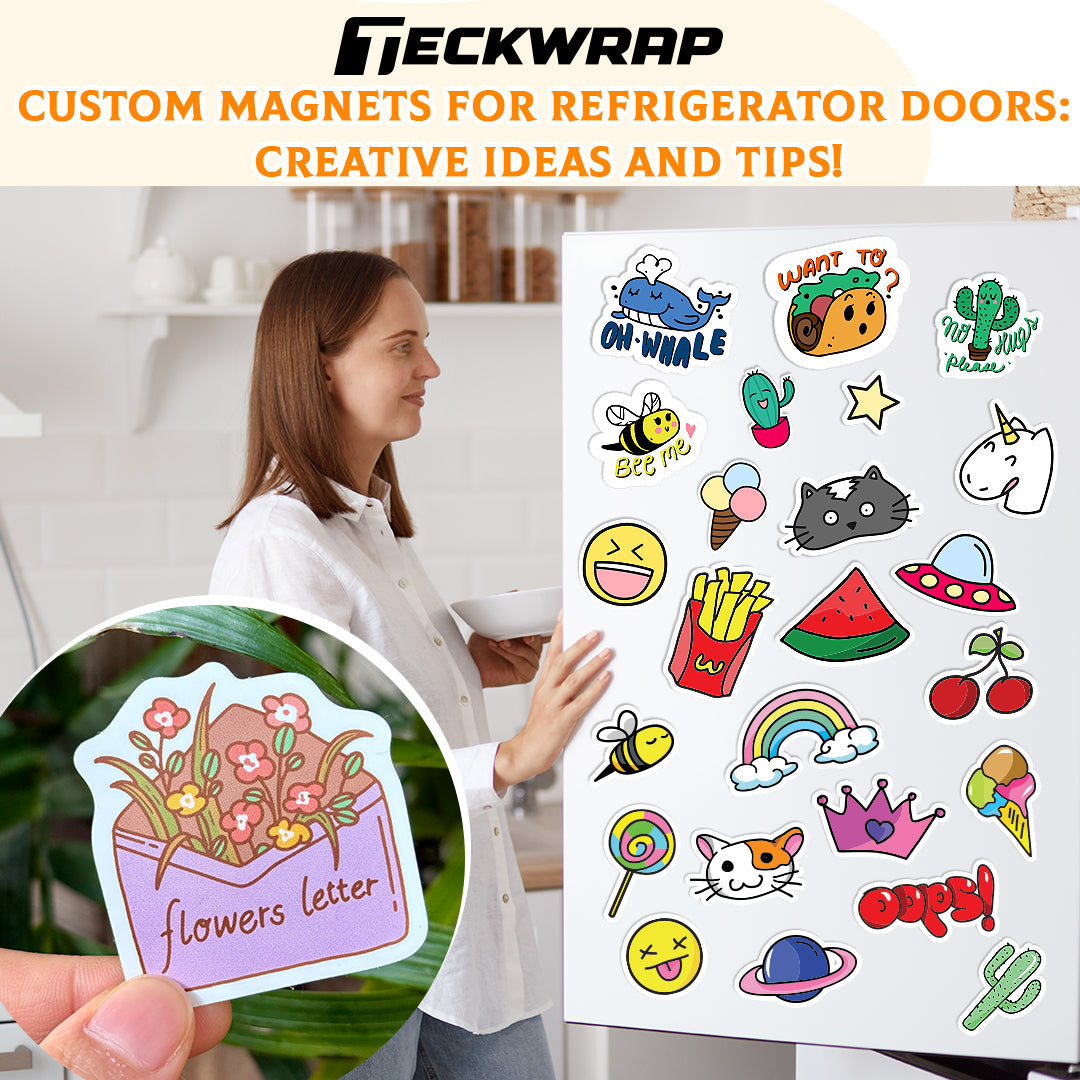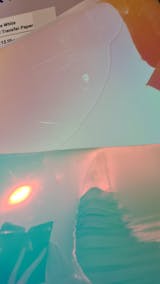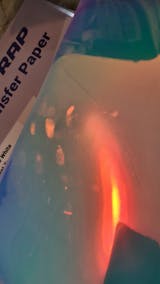Updated By TeckWrap Craft On October 5, 2024
The Difference Between Screen Print And Sublimation

Table Of Contents
- The Impactful Difference Of Sublimation Vs. Screen Printing
- Screen Printing: Oldie But Goodie
- The Advantages Of Screen Printing
- The Disadvantages Of Screen Printing
- The Advantages Of Sublimation
- The Disadvantages Of Dye Sublimation
- Printing Methods
- Let’s Go Digital Printing With Sublimation
- Let’s Value The Traditional
- Frequently Asked Questions
The difference between screen printing and sublimation lies in their methods of transferring designs, the number of prints each can produce, the type of fabric used, and the time that you have to give to the process. This blog discusses in detail the contrast between screen printing and sublimation and helps you decide which one you should opt for depending on the demands of your project.
The Impactful Difference Of Sublimation Vs. Screen Printing
Sublimation printing or Dye Sublimation printing is a technique that applies a heat press to transfer a design onto a fabric specifically polymer-coated fabrics. The transfer paper is printed with solidified inks, and when the ink gets hot enough (through the pressing machine), it vaporizes into a gas.
This gas or vapor transfuses the fibers of the garment and creates an impressive design that’s vibrant and a photocopy of the design you have conceived and printed onto the transfer paper.
On the other hand, screen printing, serigraph printing, or silk screening has been used longer than sublimation. Using a squeegee, you press ink onto a t-shirt, and the ink guided by the design stencil and, passes through a silk screen gets in contact with the fabric.
| Sublimation | Screen Printing |
|---|---|
| Uses heat to turn ink into gas, which then bonds directly with polyester fibers, creating a long-lasting design | The ink is pushed through a stencil onto the fabric using a screen and squeegee. |
| Special disperse dyes are used for sublimation. | You can use discharge inks, plastisol inks, and water-based inks for screen printing. |
| You need a heat press, sublimation printer, and sublimation sheets for this. | You need a silkscreen, a squeegee, a detailed screen print stencil, a screen printing press, and an exposure unit for this. |
| Works best on 100% polyester or polyester-blend fabrics. | Can be used on a wide range of fabrics such as cotton, polyester, silk, and so on. |
| Works well with white or light-colored compatible fabric. | This can be done on any color fabric. |
| The process of sublimation printing is easier. | The process is complex with more tools needed. |
| Slower production speed. | Faster production speed. |
| Best for small-scale projects. | Best for bulk projects |
Screen Printing: Oldie But Goodie
With screen printing, the image is transferred from a design stencil onto a screen where the ink is then squeezed to penetrate its holes and mimic the shape of the stencil. Screen printing has been around long before sublimation printing was born, approximately 50 years interval. Still, screen printing is one of the most popular printing techniques. Why? Here are the advantages of the screen printing process.
With screen printing, you’ll need the following materials:

Design Stencil
The design that will be printed on the shirt will come from the stencil which is created on polyester mesh screens. It will define the art to be printed. The stencil has a part that’s sollid and won’t allow the ink to pass and an open area- the part where the ink adheres to and will be embedded onto the fabric.
You may also use ordinary paper and tape to hold the stencil on the screen.
Screen Printing Ink
Screen Printing Ink is usually water-based, which was recently discovered, and plastisol, which was already used decades earlier.
Note that there are two main types of ink for screen printing: (1) plastisol ink and (2) water-based ink. These two types produce different results.
The printing process and chemistry of water-based is much different than plastisol. With any water-based or discharge water-based ink the pigment actually integrates or soaks into the fabric.
Screen printing is best for cotton t-shirts. However, t-shirt printing is not easy especially if you want multiple colors to show on your shirt’s design.
The Advantages Of Screen Printing
- Prints Large Volumes: Screen printing is best if you intend to design shirts in bulk using the same stencil.
- Versatile Usage: Screen printing is versatile as it can be done on different fabrics such as cotton, cotton blends, and polyester. It is the favorite method for designing uniforms and sports apparel.
- Allows Special Effects: You can choose from a wide range of screen printing inks and create special effects like three-dimensional and foil designs. Specialty inks, like gold or silver, may be used to create interesting textures and graphic designs.
The Disadvantages Of Screen Printing
- Prints Only One Color At A Time: The screen printing process only allows one color printing at a time, so different screens are used for a multicolor design.
- Can Be Messy: Screen printing can be messy and the ink may get splashed onto the garment.
The Advantages Of Sublimation
- Prints Vibrant Colors: Since it uses the design you have processed using software, you can print more vibrant colors with sublimation.
- Photo-Realistic Prints: Sublimation printing allows you to transfer photo-realistic images on your shirt because they are digital.
- Can Be Used On Hard Surfaces: You can also sublimate on hard surfaces such as coffee mugs and tumblers. You just have to treat these with polymer.
- The Quality Of The Print is Maintained: Sublimation printing does not fade. It retains its color vibrance if printed on polyester or shirts with high polyester content.
- Cost-Effective Method: Sublimation is more cost-effective compared to screen printing.
The Disadvantages Of Dye Sublimation
- A Costly and Time-Consuming Process: Sublimation printers and other tools are costly. It takes more time to print multiple shirts as well.
- Works Best On White Garments And Polyester: Sublimation printing only works best on white or light-colored polyester. This limits its fabric compatibility.
- Not Very Environment-Friendly: Sublimation printing produces fumes and waste that cannot be recycled. It has to be carried out in a well-ventilated area.
Printing Methods
The Printing Methods involved in designing through screen printing and sublimation.
Let’s Go Digital Printing With Sublimation
With sublimation printing, the digital image is printed on a transfer paper.
The transfer paper, with the image already printed on it, is positioned on the surface of the shirt where the design should be.
Once the transfer paper is positioned, heat is applied thru a heat press or even just a common household iron. But of course, a pressing machine will surely produce a high-quality result.
The heat will make the dye from the transfer paper, transfer onto the garment’s fabric fibers.
The vapor permeates the fabric’s fibers and embeds the design on sublimation blanks.
Let’s Value The Traditional
For those who are quite apprehensive about a digital go-to printing method that has changed the game, the traditional technique still works well. How does traditional printing work?
A design will be created in a stencil, which is going to be the template the silk screen will hold and the guide for the ink that will pass through it.
There are different techniques of using this method:
- You may use masking tape or vinyl to cover the areas where you don’t want the ink to pass through
- Some use light-sensitive emulsion to create a stencil developed in the same process as photographs.
- Some paint the stencil onto the mesh by using screen blockers like lacquer or glue.
Frequently Asked Questions
Sublimation vs. Screen Printing: Now, What Should It Be?
Now that you have learned the different concerns about sublimation and screen printing, you’ll probably have come up with the decision of the discussed dye transfer techniques that appeal to you as you think of the t-shirts that are going to be your printed material.
Both screen printing and sublimation can be your go-to methods in printing shirts for business or even for your own pleasure. You can create the graphic design you’ll put on it using any graphic design software, you’re comfortable with.
When discussing sublimation vs. screen printing, our main considerations must be the purpose and the available resources. Sublimation printing requires little set-up and is cost-effective for any order size. When you compare this with other dye transfer techniques, the more you’ll realize that sublimation tops your decision.
Sublimation will give you more freedom to express your designs without compromising comfort and the environment. The setback to this kind of technique is the printing of a new transfer sheet for each garment. Which can be time-consuming.
When we weigh down the pros and cons of sublimation vs screen printing we’ll find out that it’s a close fight. One will overpower the other in some aspects. Even when we talk about their weaknesses, which they both have, it’s really a tight competition.
Finally, though right now we may have our fave printing technique already, more so after learning about its pros and cons, there may be times when we will still have to resort to the other over our favorite. It will sometimes be a matter of practicality over aesthetics. Depending on our main purpose, both sublimation and screen printing will give us the printing quality that we need.
We may now print designs that rock! How? Sublimation or screen printing? It’s up to you!








